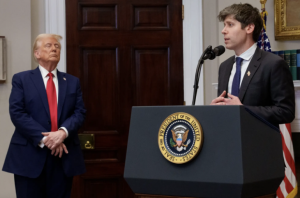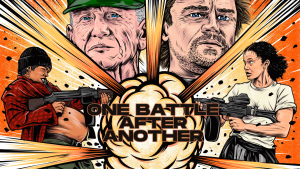Conversations that Matter series tackles the right to marry
Speakers discusses effects of Supreme Court on LGBTQA community
October 15, 2015
As a part of the Conversations that Matter series, “Love Wins! What’s Next?” highlighted issues in the LGBTQA community that persist even though the Supreme Court has ruled that same-sex marriage is legal.
Three speakers were present during the Sept. 29 event to discuss these remaining problems.
The first speaker, A.T. Furuya, a graduate student at SDSU, provided insight into the intersection between race and LGBTQA identity. Furuya began the discussion by bringing issues regarding the transgender community to light, including the lack of inclusion of transgender specific spaces within the LGBTQA community. Furuya placed emphasis on the need for discussion and acceptance of LGBTQA identities within the Asian American community, as well.
Bea Fonseca, the second speaker, spoke of her experiences working as a Latina woman and member of the transgender community. Fonseca was inspired by her past to become an activist and organizer and shared facts with the audience regarding the socioeconomic hardships that transgender women often face.
“As transgender women, we are almost 40 percent more likely to live in extreme poverty,” she said.
Jennicet Gutiérrez was the third and final speaker. Gutiérrez gained nation-wide attention after she was thrown out of the White House for speaking out during a speech given by President Obama. Describing herself as “a proud, undocumented, Latina, trans-woman,” Gutiérrez captured the attention of the room by sharing her ideas about the necessity of challenging patriarchy, racism and classism.
“What I did at the White House was shared throughout the country, but what I said … the issues I was speaking against, did not make media headlines,” said Gutiérrez.
After the speakers presented, the audience asked questions regarding activism. They also asked for advice on how to become more involved in the LGBTQA community.
“Social media allows people to share ideas and information with others who want to be involved, [and] encourage students to share articles and other resources about social movements through their personal social media,” said Fuyura, responding to a question regarding how students can get involved.
The speakers closed the event by emphasizing the need for community involvement and the need for understanding of intersectional identities.
“After the win that is marriage equality, we now have an opportunity to push for more change and more equality,” said Gutiérrez.






